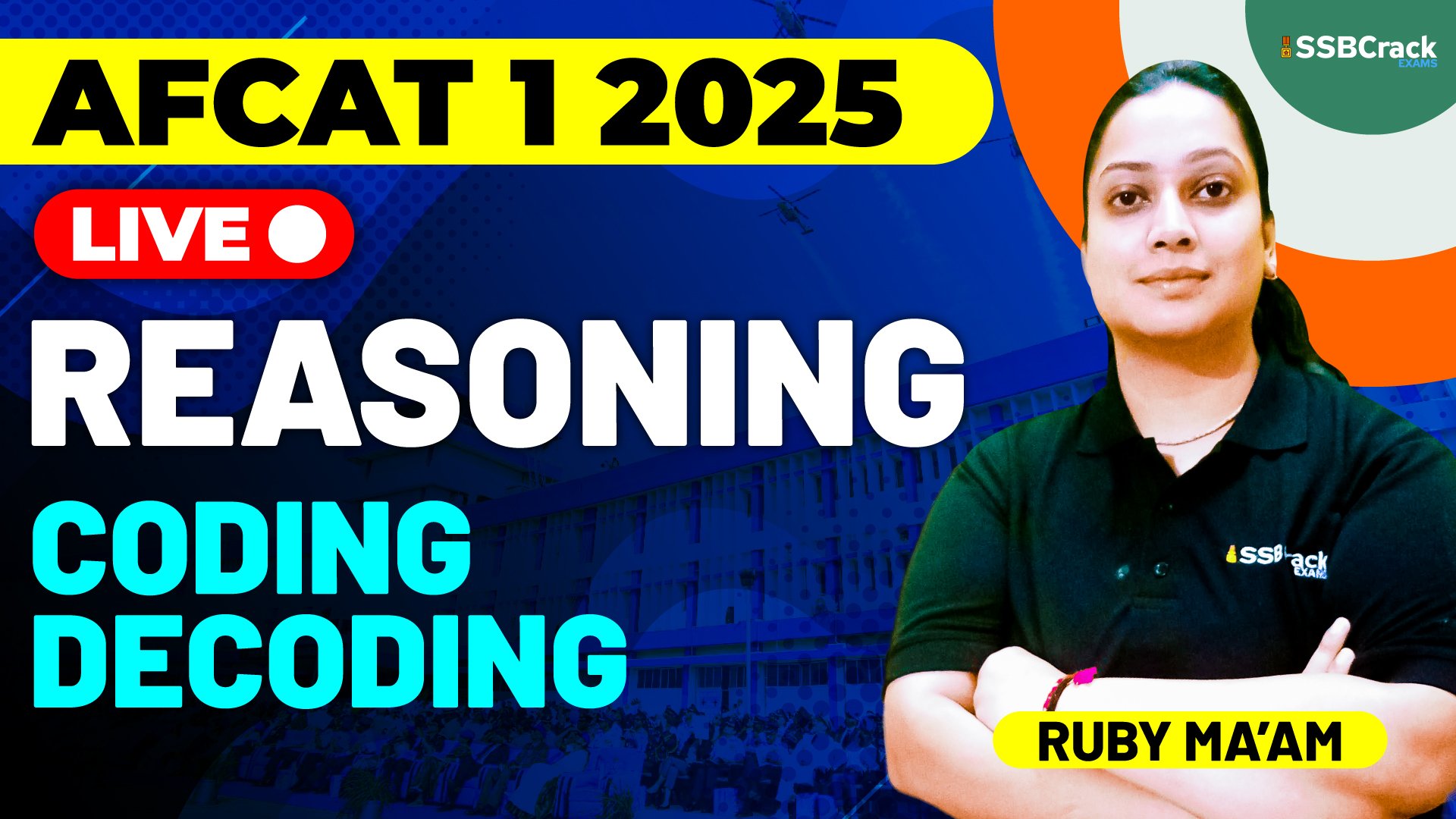Air Force Common Admission Test (AFCAT) is a crucial gateway for those aspiring to join the Indian Air Force. As part of its syllabus, the exam tests a candidate’s proficiency in various subjects, including verbal ability, numerical ability, general awareness, and reasoning. Among these, the reasoning section plays a pivotal role in assessing a candidate’s problem-solving abilities and analytical thinking. One of the important components within this section is Coding and Decoding.
For AFCAT aspirants, mastering coding and decoding is not only important for clearing the exam but also reflects essential cognitive skills that are relevant to military roles. Let’s break down why coding and decoding holds such significance and how it benefits you in the long run.
1. Quick Thinking and Pattern Recognition
Coding and decoding questions require identifying patterns, relationships, and rules between a coded message and its original form. In AFCAT, such questions test your ability to quickly recognize these patterns, whether they involve numbers, letters, or symbols.
For example, a common type of question might ask you to decode a word according to a specific alphabetical shift or numerical relationship. Practicing these problems sharpens your ability to observe patterns and apply logic swiftly—both essential qualities in high-pressure situations, such as those encountered in defense roles.
2. Enhances Problem-Solving Skills
AFCAT aims to filter out individuals who can effectively solve problems under time constraints. Coding and decoding are essentially puzzles that need quick, logical thinking. When presented with a coded message, aspirants must work backward or forward to decode it correctly.
The ability to handle such tasks is also reflective of one’s capacity to break down larger problems into smaller, manageable steps—a skill crucial in both military training and operations.
3. Tests Logical Deduction
Coding and decoding questions often rely on logical deductions. This means understanding the given problem, making appropriate assumptions, and arriving at a valid conclusion. Logical deduction is one of the most critical skills in military strategy and leadership roles.
In the AFCAT exam, coding and decoding questions often range from simple letter-to-number conversions to complex puzzles involving multiple levels of coding. The more practiced you are at understanding the logic behind each code, the quicker and more accurate your answers will be.
4. Boosts Time Management
As AFCAT is a time-bound exam, aspirants must answer a variety of questions within a limited timeframe. Coding and decoding questions, once you have the knack for them, can be solved swiftly, allowing you to dedicate more time to other challenging sections of the test. Developing proficiency in coding and decoding thus helps manage time better, giving you a distinct advantage.
5. Real-World Application
In the military, the ability to interpret signals, codes, and messages quickly and accurately is vital. Cryptography and coded communications are part and parcel of defense strategies worldwide. While the coding and decoding questions in AFCAT might seem like simple puzzles, they reflect the real-world application of these skills in defense scenarios where understanding coded communications is essential.
Moreover, quick decision-making and correct interpretation of signals are crucial for Air Force personnel in roles involving surveillance, intelligence, and operations.
6. Mental Agility and Flexibility
The more you practice coding and decoding, the more mentally agile you become. It fosters flexibility in thinking as the patterns and rules of these problems change with each new question. In the dynamic environment of the armed forces, where plans and strategies are constantly evolving, mental flexibility is a key trait for success.
7. Scoring Potential
In AFCAT, coding and decoding questions are generally straightforward once you understand the underlying principles. They offer a good opportunity to score marks quickly without getting bogged down. Every correct answer adds to your overall score, pushing you closer to the qualifying marks.
Tips for Mastering Coding and Decoding:
- Understand Basic Patterns: Learn to identify common coding techniques, such as letter shifting, reverse alphabetical order, and positional values of letters.
- Practice Regularly: The more you practice, the quicker you’ll become. Use mock tests and previous year’s papers to familiarize yourself with different types of coding and decoding questions.
- Break Down the Code: In more complex problems, break the code into smaller parts and solve it step by step.
- Time Yourself: Practice under timed conditions to simulate exam pressure and improve speed.
- Review Your Mistakes: Analyze where you went wrong in practice sessions and avoid repeating the same mistakes.
Conclusion
Coding and decoding questions in AFCAT are not just simple mental exercises; they are a reflection of critical skills like logical thinking, quick decision-making, and attention to detail. These abilities are highly valuable, not only in cracking the exam but also in excelling in your career with the Indian Air Force. By practicing coding and decoding regularly, you enhance your reasoning abilities, boost your confidence, and significantly improve your chances of success in the AFCAT exam.







